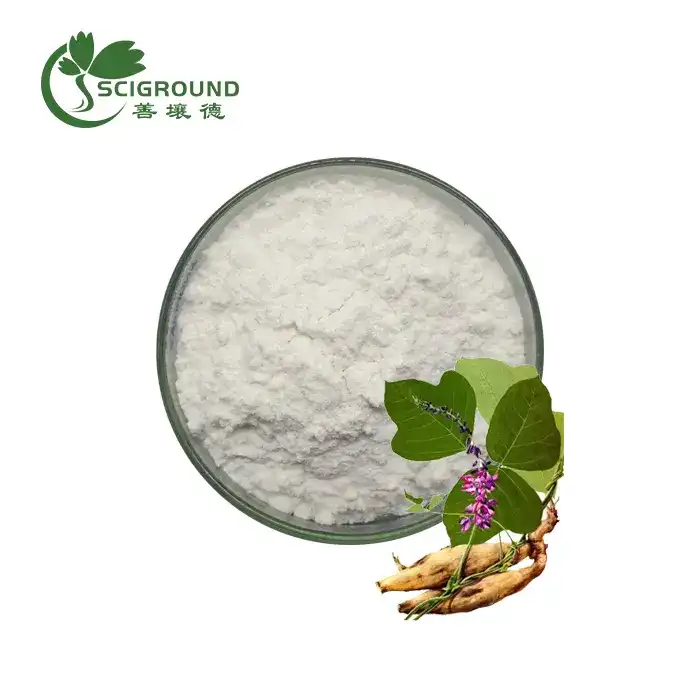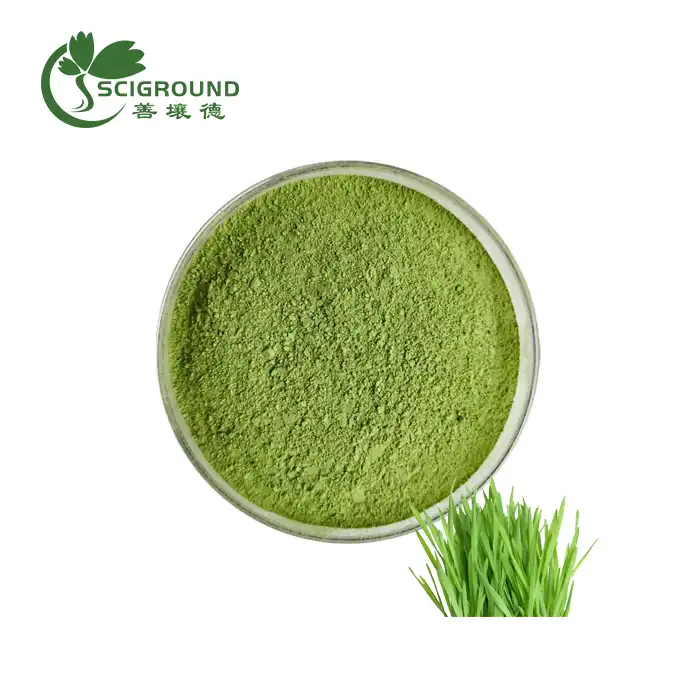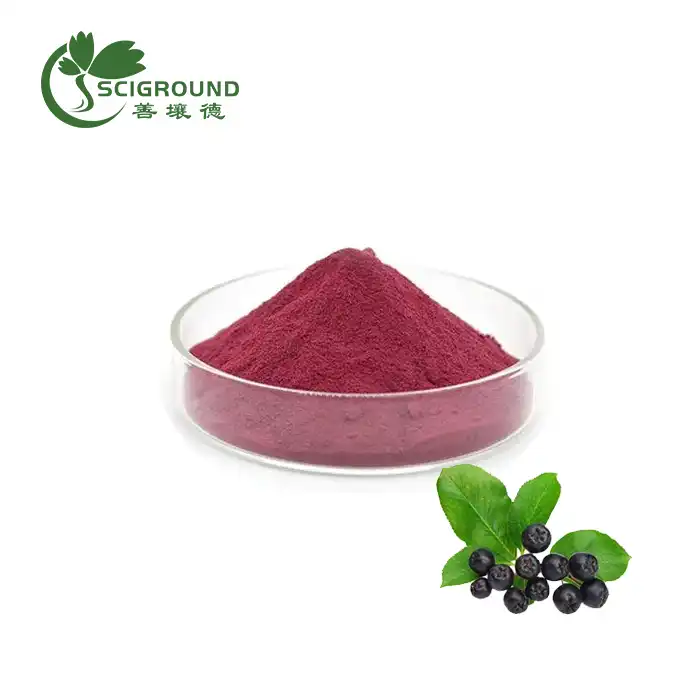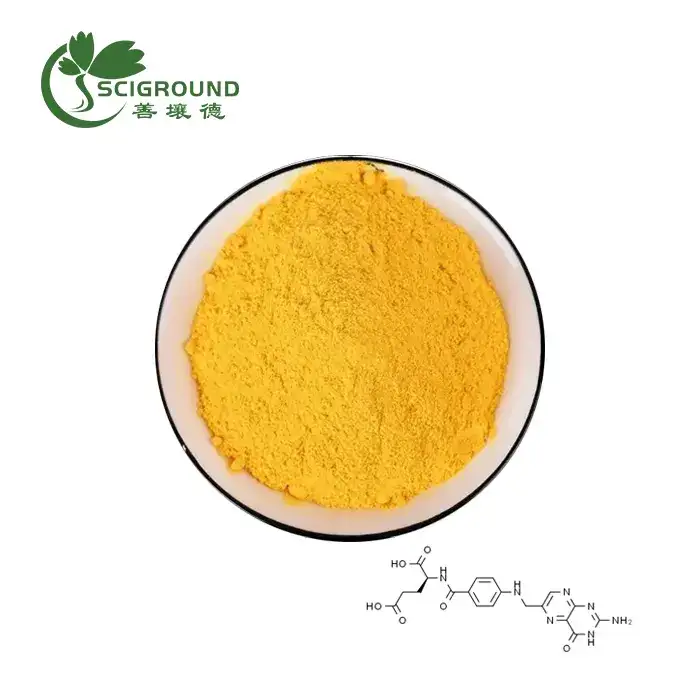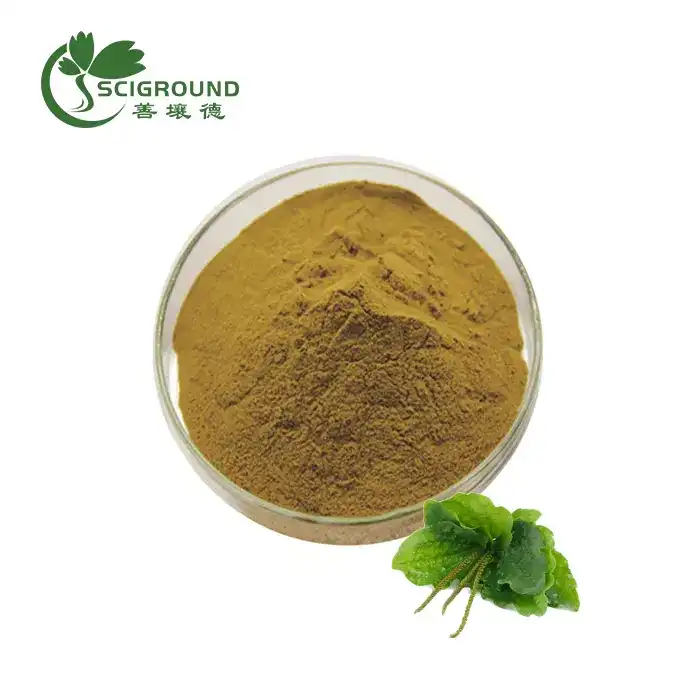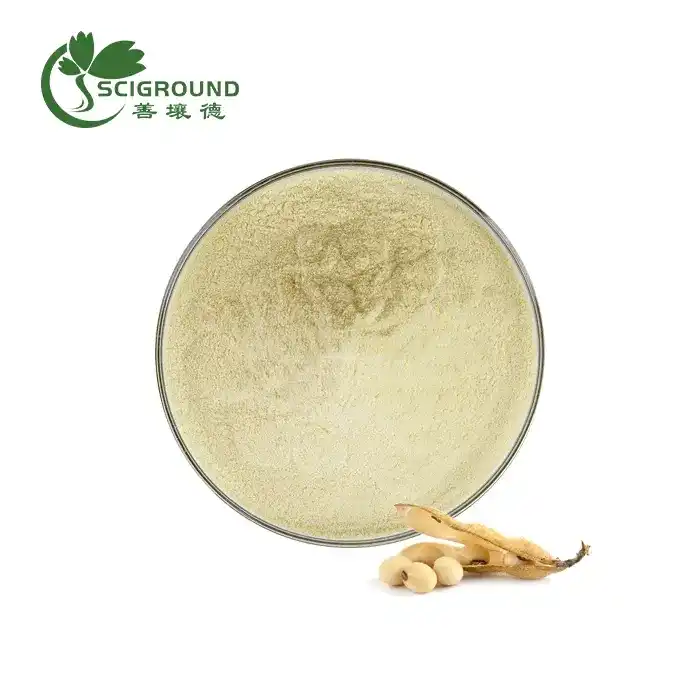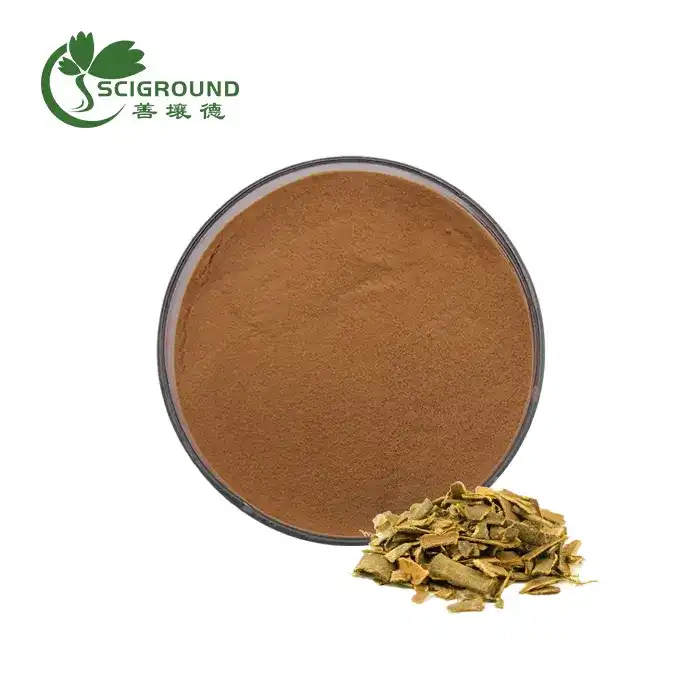What are the uses and pharmacology of Nobiletin Powder?
Nobiletin powder is a fascinating compound derived from citrus fruits that has gained significant attention in the scientific community for its potential health benefits. As researchers continue to explore its properties, nobiletin has shown promise in various areas of health and wellness. In this comprehensive guide, we'll delve into the world of nobiletin, exploring its origins, benefits, and potential applications.
What is Nobiletin?
Nobiletin is a flavonoid compound belonging to the class of polymethoxylated flavones (PMFs). It's primarily found in the peels of citrus fruits, with tangereines and mandarin oranges being particularly rich sources. This potent compound has garnered interest due to its unique molecular structure, which allows it to interact with various biological pathways in the body.
The chemical structure of nobiletin consists of a flavone backbone with six methoxy groups attached. This configuration gives nobiletin its distinctive properties and contributes to its bioactivity. Researchers have identified nobiletin as a key player in the health-promoting effects of citrus fruits, leading to increased focus on its potential as a standalone supplement.
Nobiletin powder is the concentrated, extracted form of this compound, allowing for more precise dosing and easier incorporation into supplements or research protocols. The isolation and purification process of nobiletin from citrus peels involves sophisticated extraction techniques, ensuring a high-quality end product.
What are the benefits of a Nobiletin Supplement?
The potential benefits of nobiletin supplements are diverse and encompass several areas of health. While research is ongoing, current studies suggest that nobiletin may offer the following advantages:
Neuroprotective Properties
One of the most promising areas of nobiletin research is its potential neuroprotective effects. Studies have indicated that nobiletin may help safeguard brain cells from damage and support cognitive function. This has led to increased interest in its potential role in age-related cognitive decline and neurodegenerative disorders.
Nobiletin has demonstrated an ability to cross the blood-brain barrier, allowing it to directly interact with neural tissues. This property is crucial for its neuroprotective potential, as it enables the compound to exert its effects directly on brain cells.
Antioxidant Activity
Nobiletin exhibits potent antioxidant properties, which may help combat oxidative stress in the body. Oxidative stress is implicated in various chronic diseases and the aging process, making antioxidants like nobiletin valuable for overall health maintenance.
The antioxidant activity of nobiletin is attributed to its ability to neutralize free radicals and support the body's natural antioxidant defense systems. This may help protect cells from damage and support overall cellular health.
Anti-inflammatory Effects
Chronic inflammation is a contributing factor to many health issues, and nobiletin has shown promise in modulating inflammatory responses. By influencing various inflammatory pathways, nobiletin may help mitigate excessive inflammation in the body.
The anti-inflammatory properties of nobiletin are particularly interesting in the context of conditions characterized by chronic inflammation, such as arthritis or inflammatory bowel diseases.
Metabolic Health Support
Research has suggested that nobiletin may play a role in supporting metabolic health. Studies have shown potential benefits in areas such as glucose metabolism, lipid regulation, and weight management.
The metabolic effects of nobiletin are thought to be related to its ability to influence certain cellular pathways involved in energy metabolism and fat storage. This makes nobiletin an intriguing compound for research into metabolic disorders and obesity.
Cardiovascular Health
Preliminary studies have indicated that nobiletin may have cardioprotective properties. Its potential to support healthy cholesterol levels, improve blood flow, and protect blood vessels makes it an interesting compound for cardiovascular health research.
The cardiovascular benefits of nobiletin are likely related to its antioxidant and anti-inflammatory properties, as well as its potential effects on lipid metabolism.
Circadian Rhythm Regulation
An interesting area of nobiletin research involves its potential impact on circadian rhythms. Some studies suggest that nobiletin may help regulate the body's internal clock, which could have implications for sleep quality and overall health.
The ability of nobiletin to influence circadian rhythms is thought to be related to its interactions with certain proteins involved in the body's internal timekeeping mechanisms.
What is nobiletin used for?
The potential applications of nobiletin are diverse, reflecting its wide-ranging effects on various biological processes. While research is ongoing, some of the key areas where nobiletin is being studied include:
Neurodegenerative Disease Research
Given its neuroprotective properties, nobiletin is being investigated for its potential role in neurodegenerative diseases such as Alzheimer's and Parkinson's. Researchers are exploring whether nobiletin could help slow the progression of these conditions or alleviate some of their symptoms.
The ability of nobiletin to protect neurons from oxidative stress and potentially support the clearance of harmful protein aggregates makes it a compound of interest in this field.
Cancer Research
Preliminary studies have suggested that nobiletin may have anti-cancer properties. While much more research is needed, early findings indicate that nobiletin might help inhibit the growth and spread of certain types of cancer cells.
The potential anti-cancer effects of nobiletin are thought to be related to its ability to influence cell signaling pathways involved in cell growth and division.
Metabolic Syndrome Management
Nobiletin's potential effects on metabolism have led to research into its use in managing metabolic syndrome. This cluster of conditions, including high blood pressure, high blood sugar, and abnormal cholesterol levels, is a significant health concern worldwide.
Studies are exploring whether nobiletin supplementation could help improve various aspects of metabolic health, potentially offering a complementary approach to lifestyle modifications and conventional treatments.
Cardiovascular Health Support
The potential cardiovascular benefits of nobiletin have sparked interest in its use for heart health. Research is ongoing to determine whether nobiletin could play a role in supporting healthy blood pressure, improving cholesterol profiles, and protecting the heart and blood vessels.
While more studies are needed, the preliminary findings suggest that nobiletin could be a valuable compound in the field of cardiovascular health.
Anti-aging Research
The antioxidant and anti-inflammatory properties of nobiletin have led to interest in its potential anti-aging effects. Researchers are exploring whether nobiletin could help mitigate some of the cellular damage associated with aging, potentially supporting healthy aging processes.
This area of research encompasses various aspects of aging, from skin health to cognitive function and overall cellular health.
Sleep and Circadian Rhythm Studies
The potential of nobiletin to influence circadian rhythms has led to research into its use for sleep-related issues. Studies are exploring whether nobiletin supplementation could help improve sleep quality or aid in the management of circadian rhythm disorders.
This area of research is particularly interesting given the importance of healthy sleep patterns for overall health and well-being.
In conclusion, nobiletin powder represents a fascinating area of research in the field of natural compounds and their potential health benefits. From its neuroprotective properties to its potential role in metabolic health and beyond, nobiletin continues to intrigue researchers and health enthusiasts alike. As research progresses, we may gain even more insights into the uses and pharmacology of this remarkable citrus-derived compound.
While the potential benefits of nobiletin are exciting, it's important to note that much of the current research is still in preliminary stages. As with any supplement or health intervention, it's crucial to consult with a healthcare professional before incorporating nobiletin into your health regimen.
If you're interested in learning more about nobiletin powder or exploring its potential applications, we invite you to reach out to our team at Shaanxi SCIGROUND. As a professional Plant Extract Powder manufacturer and supplier, we're committed to providing high-quality products and supporting ongoing research in this exciting field.
For more information about nobiletin powder or any of our other products, please contact us at: info@scigroundbio.com. Our team of experts is ready to answer your questions and provide you with the information you need to make informed decisions about your health and research needs.
References: 1. Huang, Y., et al. (2019). Nobiletin, a citrus flavonoid, ameliorates cognitive impairment, oxidative burden, and hyperphosphorylation of tau in streptozotocin-induced diabetic rats. ACS Chemical Neuroscience, 10(4), 2111-2119. 2. Lee, Y. S., et al. (2010). Nobiletin improves obesity and insulin resistance in high-fat diet-induced obese mice. Journal of Nutritional Biochemistry, 21(9), 937-943. 3. Murakami, A., et al. (2007). Nobiletin, a citrus flavonoid, down-regulates matrix metalloproteinase-7 (matrilysin) expression in HT-29 human colorectal cancer cells. Bioscience, Biotechnology, and Biochemistry, 71(10), 2499-2504. 4. Onozuka, H., et al. (2008). Nobiletin, a citrus flavonoid, improves memory impairment and Aβ pathology in a transgenic mouse model of Alzheimer's disease. Journal of Pharmacology and Experimental Therapeutics, 326(3), 739-744. 5. Takumi, H., et al. (2012). Bioavailability of orally administered water-dispersible hesperetin and its effect on peripheral vasodilatation in human subjects: implication of endothelial functions of plasma conjugated metabolites. Food & Function, 3(4), 389-398. 6. Zhang, L., et al. (2016). Nobiletin, a citrus flavonoid, reverses learning and memory impairment in transgenic mouse model of Alzheimer's disease. Pharmacology Biochemistry and Behavior, 144, 13-20.
Related Industry Knowledge
- What are the interactions of Mulberry Leaf?
- What is Mogroside Monk Fruit?
- How it works with ambroxol hydrochloride
- how to make dandelion root extract
- Does fisetin harm kidneys?
- What Foods Have Vitamin B5
- Can cinnamon reduce belly fat?
- Is Persimmon Extract Powder the Key to Unlocking Health Benefits and Uses?
- Is bcaa good for you
- Are bcaas safe
